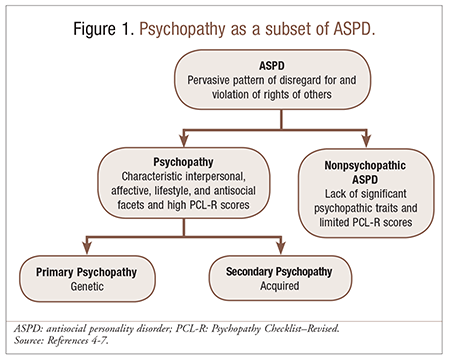Difference Between Psychopathic and Sociopathic Personality Disorders

Difference between Sociopath and Psychopath: What is the Difference?
Psychopathic or Sociopathic: What is the Difference?
Sociopathy and Psychopathy are social disorders. Psychopathy is characterized by a lack of guilt and empathy for others, while Sociopathy is characterized by a lack of empathy and guilt. According to Dr. Paul Babiak, a psychiatrist and clinical psychologist in Chicago, both psychopathy and sociopathy have common characteristics and can occur in any person of any age or gender. In many countries, both psychopathy and sociopath are included under the diagnosis of mental illness. The term is used interchangeably and usually when describing someone.
Sociotesaurs are animal species that live on all continents and do not have predators. They have a very high intelligence. They are able to learn a language in minutes or a new one in hours. They have a high sense of humor and are able to learn social rules quickly and easily. They are not afraid of danger or death and are completely fearless. These are people who are not afraid to make mistakes and are able to quickly adapt to changes in their environment.
Sociopathy is a personality disorder characterized by a complete disregard for the rights of others and a lack of remorse or shame. They don't care about other people's feelings. They are very cunning and manipulative, and they can take complete control over people's lives. They will always try to get what they want.
A person with antisocial personality disorder may not have a criminal record, but most likely they have at least one criminal record. They also have a high level of criminal recklessness and may not even be aware that they are doing something wrong. Sociopaths often live their lives without remorse or shame for their behavior. They will do something to hurt and intimidate other people.
Sociopathy has the characteristics of a narcissistic personality disorder and is often manifested by narcissists and perky people who are extremely self-centered and self-centered. They have poor social skills and are extremely self-centered.

Psychopaths are more likely to commit crimes, but there is no evidence of repetitive behavior in which they choose victim over victim. Sociopaths are violent and much more likely to kill than the average person. They are prone to criminal activity, sexual assault, theft and violence. They are more prone to violent behavior and criminal behavior in public places such as bars and restaurants.
Sociopaths are more likely to become violent in relationships and they are more likely to offend. They are more likely to have violent sexual behavior, criminal behavior, and a tendency to use drugs and alcohol, and they are more likely to offend sexually. Sociopaths may appear to have an inflated ego and they have low self esteem, they may show little or no empathy for the feelings of others, and they are likely to blame others for their behavior.
Most psychologists think that they may also have a history of sexual abuse or crimes, and in many cases, they may have had some type of criminal records in their past. This is not to say that all people with criminal histories are psychopathy or that all people with criminal backgrounds are psychopathy, but it is possible that they share some similarities.
People with a criminal background are likely to have at least one arrest for a sex crime or a violent offense, and they may also have been charged with other types of offenses such as assault or battery. They are likely to have been arrested a number of times for drug charges. and probably have committed crimes involving theft and fraud.
Most psychopathy and sociopathy problems can be treated with help. There are no clear-cut cause and effect relationship between psychopathy and sociopathic personality disorders, but some researchers believe that those with the disorders will respond to treatment in a similar way. Treatment for both psychopathy and sociopathy depends on how severe the problem is and how severe the disorder is. The treatment for both conditions requires that the patient understand their diagnosis and that they are willing to make positive changes in their life.
Other common symptoms of either type of disorder include: being impulsive and not planning ahead; a lack of empathy; having problems with relationships; acting in a way that is irresponsible or self-destructive; lying and stealing; being unable to change behaviors that do not serve their interests; acting impulsively or irresponsibly; and being callous toward their fellow humans. People with these personality disorders are often manipulative and they are not interested in other people's feelings and can seem to care little about what is happening around them.